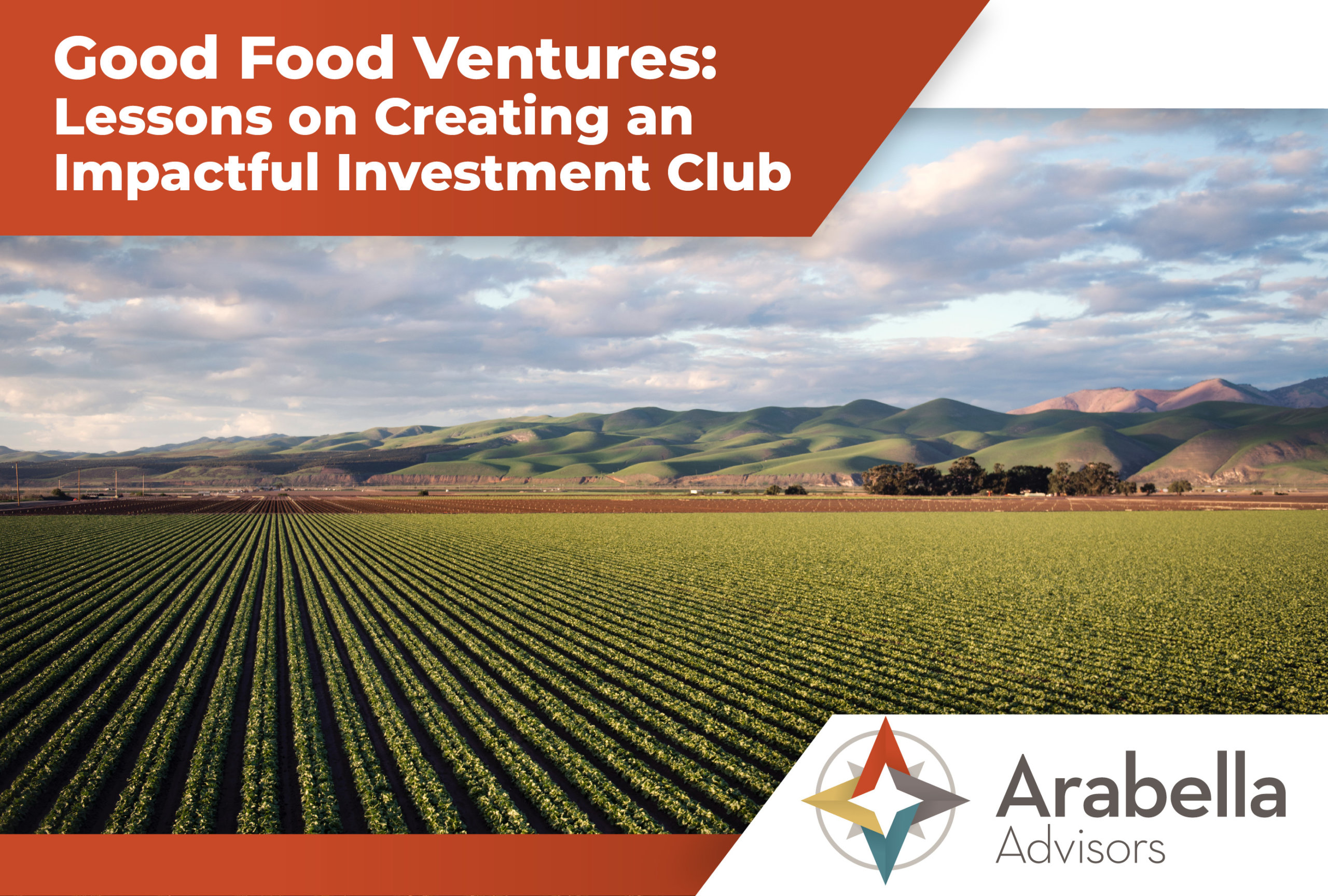Good Food Ventures: Lessons on Creating an Impactful Investment Club

It is becoming more common knowledge that agriculture and the food supply chain are important levers to slow climate change and support our earth’s health and resilience. But philanthropists and individuals only recently adopted a more front-footed posture in the sector to effect real change. In support of this increased attention and in response to our clients’ interest, Arabella launched its Good Food Practice, which supports changemakers looking to improve the food system in the United States using philanthropy, policy, and impact investing. A piece of that practice is Good Food Ventures, an early-stage investment club for family offices launched in 2017. Since that time, we’ve supported the fundraising of 48 companies and funds across our five impact pillars: sustainable agriculture, sustainable oceans, food waste, nutrition, and food access. These companies have been operating at the vanguard of some of the most critical issues facing our food system. They are developing biofertilizers, new financing structures for farmers, alternative proteins and lab-grown meats, methods of getting affordable healthy food into food deserts, and more. In short, they’ve been working on the technologies that we hope are becoming foundational to every part of the food system.
Along the way, we’ve learned a tremendous amount about early-stage food and agriculture investing. First, the industry has matured significantly over the past six years. Highly sophisticated new funds have been launched. Fantastic entrepreneurial talent is coming to the sector. We’ve also seen more and more asset owners (foundations, family offices, corporations) bringing food and agriculture into their climate-focused portfolios by committing larger amounts of their portfolio to agricultural and food-system opportunities. What’s more, investment terms are shifting toward investors—and this sector is no different. Private companies are strategizing how to raise capital for what could be a pending recession or further economic tightening, which presents an opportunity for investors to support entrepreneurs working on important issues and enter the market at a time that should lead to higher financial returns.
Beyond what we’ve learned about early-stage investing in agriculture and food, we’ve also seen the value of an investment club model, such as:
- Using this model can help open doors and create the networks needed to gain access to the best deals. Sourcing direct deals is hard. It’s much more an art than it is a science. It takes time to build a strong network that trusts you as an investor and partner. For asset owners who don’t have a long history of working in a sector, investment club membership can be a useful shortcut.
- Membership helps philanthropic investors punch above their budgetary weight. High-quality due diligence is expensive, but an investment club model allows investors to share that expense, right-sizing to the organization’s budget and the size of the investment opportunity.
- Hearing peer perspectives has great value. Many philanthropic investors and family offices appreciate understanding how their peers approach similar opportunities, and it often gives them more confidence when exploring impact investments.
- Investment clubs offer opportunities to hear from experts. Good Food Ventures regularly invites experts to discuss the industries relevant to the deal that is being presented, which helps members learn about the industries they are most interested in and, in turn, helps advance their impact investing work and their grantmaking.
We’ve been excited to see the impact Good Food Ventures has had on the food system, on climate change, and on how it has deepened the impact investment experience of its members. As we continue to support our clients as they commit capital to improve our world, building bigger and more effective structures to turn their ideas to impact, we will continue to explore the role of investment clubs. We invite you to reach out if you are interested in joining Good Food Ventures—or if you’d like to discuss how to get started making investments and building your own portfolio of impact investments.
